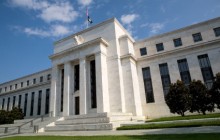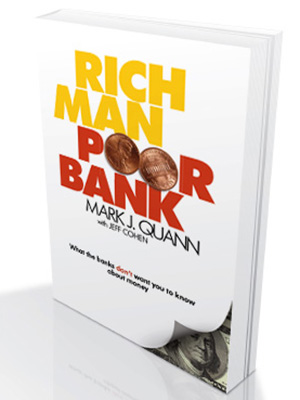Victoria Grant Exposes the Banks
Gasoline was $0.99 cents a gallon in 1998. I remember this because I was broke. I needed money for gas and only had $1.00 in my wallet. That gallon of gasoline actually took me where I wanted to go. Those were the good ol’ days.
Just 12 short years later, gasoline is hovering around $4 a gallon (a 400% increase in 12 years), and I just finished reading an article about how the Federal Reserve Chairman Ben Bernanke believes he can print trillions of US dollars–and this massive printing will NOT result in price increases. I then watched a video of a 12 year old Canadian girl who I believe has a better plan for improving the world economy than the Chairman of the Federal Reserve.
This 12 year old (Canadian) girl, Victoria Grant, explains how all the money in your wallet is actually created as “debt,” and as with all debt, it must be paid back to the bank plus interest. These principal and interest payments are paid by the taxpayers and, as more interest accrues, more money must be borrowed and more debt is created. This money (already created as debt) is then loaned to the largest banks who create even more debt by issuing credit cards, auto loans, and mortgages. With the current system, billions of debt is leveraged into trillions of debt to the consumer. And the banks simply use a computer to track the debt. where can i buy isotretinoin online yahoo It is simply a matter of time before the people simply become slaves, working to keep up with the ever-increasing principal and interest payments to the banks.
Although Victoria Grant is specifically talking about the Canadian banking system, the system is virtually the same within the United States. The difference being that Canadians (currently) must borrow from the Bank of Canada, whereas Americans must borrow from the Federal Reserve. It is impossible for Canadians or Americans to ever get out of debt.
What Victoria Grant is proposing as a solution is similar to how a credit union is set up. It is a Financial Cooperative, rather than a (banking) corporation. The cooperative has “members” (not customers) who share in the profits or benefits of the Cooperative. And the membership work together for a common purpose or benefit.
As you watch the video of Victoria Grant, please keep in mind that moving your money from a bank to a credit union is simply an important São Domingos do Maranhão first step to improving your personal finances, as well as the finances of those within your community. To learn more about how to change the entire system, here is Victoria Grant.



 Mark Quann is an entrepreneur with a belief in the liberating power of financial education and a campaign to slash the toxic influence of big banks and credit companies.
Mark Quann is an entrepreneur with a belief in the liberating power of financial education and a campaign to slash the toxic influence of big banks and credit companies. 





No comments yet.